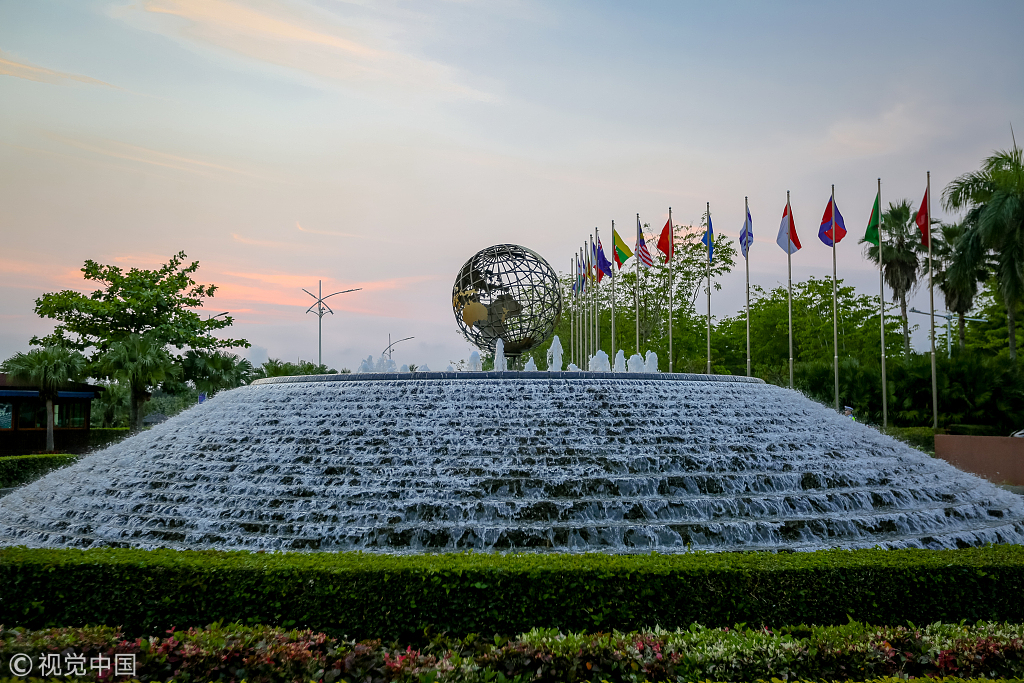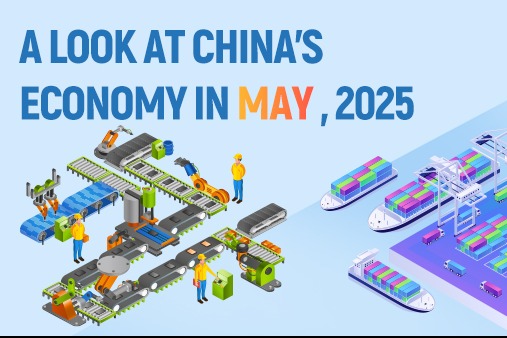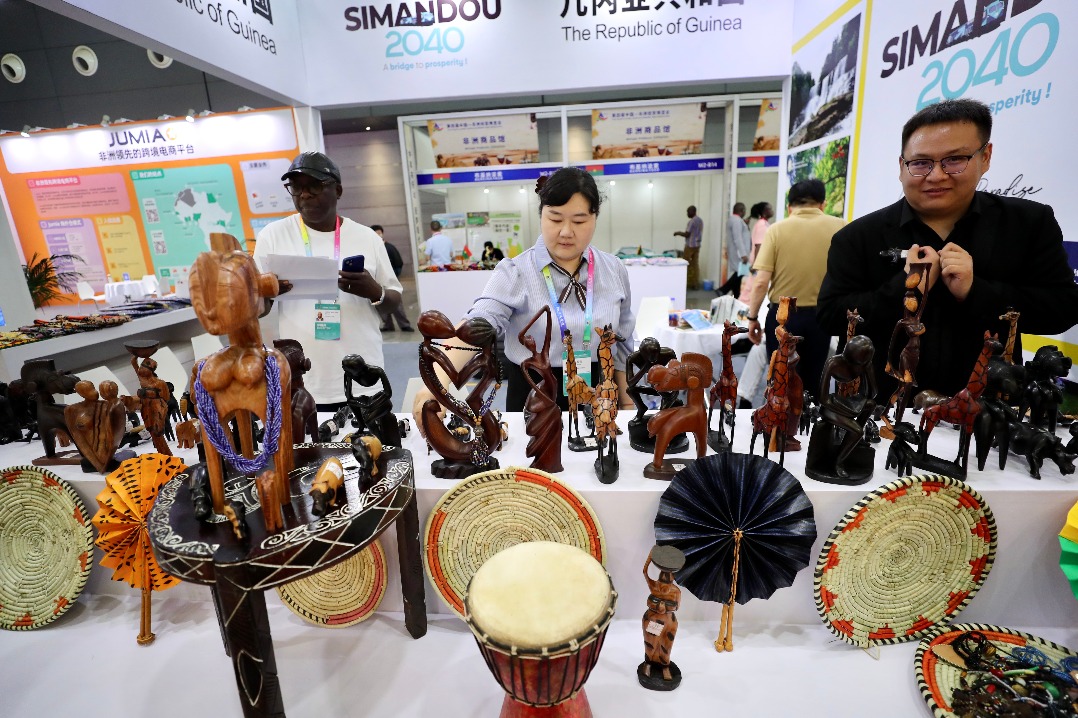Openness benefits everyone, forum told


Further opening up the economy will lead to greater competitiveness and help China upgrade its economy, said Vice-Minister of Commerce Qian Keming.
The new Foreign Investment Law, greater protection for overseas companies and the establishment of free trade zones will serve to further open up the economy, Qian told the China Development Forum at the Diaoyutai State Guesthouse in Beijing on Sunday.
"In the past we crossed the river by feeling the stones," he said, referring to an adage about gradual, learn-by-doing reform. "Now we will focus on top-level design led by new development of models, ideas and strategies."
The CDF, which was marking its 20th anniversary and had the theme "Greater Opening-Up for Win-Win Cooperation", was attended by heads of multinationals, leading academics and scholars from around the world.
Tim Cook, the CEO of Apple, said when he addressed the forum on Saturday that openness was the key to future success for China as well as its international partners.
"One of the key elements of partnership is openness-being open to working together, open to new ideas, open to new solutions," he said.
A number of Chinese ministers and top officials spoke at the meeting. Minister of Finance Liu Kun emphasized the importance of the recent announcement of 2 trillion yuan ($298 billion) of tax cuts in creating a more dynamic economy in which domestic and foreign companies alike will benefit.
People's Bank of China Governor Yi Gang stressed the importance of the opening of the financial sector, creating opportunities for foreign financial institutions, and the greater liberalization of the yuan.
Sir Martin Sorrell, founder of WPP, the world's largest advertising and public relations company and now executive chairman of marketing services company S4 Capital, also took part in the meeting. He welcomed the new initiatives for opening up the economy but said he believed that some have exaggerated the difficulties of doing business in China.
"I have been coming here since 1985 and I have found it relatively easy. You need to qualify that because it is never actually easy building a business outside your own country," he said.
"Where foreign multinationals often come unstuck in China is that, even if they acquire 100 percent ownership of a local business, they fail to retain its character, strength and vitality. So it is not just about the rules."
Ian Goldin, professor of globalization and development at Oxford University, said China is now building on the progress it made in the first 40 years of reform and opening-up.
"We have the new Foreign Investment Law, you see the openness also in people flows in terms of Chinese tourists and students going abroad and China's increasing participation in international affairs," he said.
Sir Mark Moody-Stuart, former chairman of Royal Dutch Shell and now chairman of the United Nations Global Compact, which encourages businesses to adopt more environmentally friendly and socially responsible policies, also believes the business environment is improving.
"They are lowering the barriers to entry for foreign companies and tightening up on intellectual property theft as well as making illegal forced technology transfers. There is clearly progress."
Roland Berger, founder and honorary chairman of Roland Berger, the international management consultancy, said there is still a need for further opening-up.
"If China can invest in Europe freely, for example, then European companies should be able to invest in China freely as well. I don't think the reciprocal balance is quite right yet," he said.
"There have been advances, however. Companies could once only previously operate as joint ventures and now many foreign companies have majority or 100 percent ownership. China is opening up step by step, but it is a long process-(though) if it could be speeded up there would be major benefits for China's growth."
The upgrading of China's economy was another major theme of the forum, with China now making major advances in areas such as artificial intelligence and robotics and aiming to be a global technology leader by 2035. That is the goal that was set forth by General Secretary Xi Jinping in his report to the 19th National Congress of the Communist Party of China in October 2017.
One area where China is setting the pace is in 5G technology, the next generation of mobile communications technology.
China is expected to become the world's largest 5G market by 2025 with 460 million users, according to a recent report by the Global System for Mobile Communications Association.
Yang Yuanqing, chairman and CEO of Lenovo Group, the world's largest manufacturer of personal computers, told the forum that 5G was a major opportunity.
"Traditional sectors need to pounce on the opportunities brought by 5G to upgrade themselves and create greater dividends by significantly boosting efficiency," he said.
Graham Allison, a US political scientist and former dean of the John F. Kennedy School of Government at Harvard University, said there was no need for technological rivalry to lead to international conflict.
"Using Huawei 5G technology, a surgeon has been able to perform remote surgery 4,500 kilometers away. Huawei is a leader in this technology, but the problem is companies in other countries would prefer they were the leader instead," he said.
"It would be better if everyone in China, the US and Europe recognized the possibilities of working together, but everyone wants to be the winner in this race."
Kishore Mahbubani, a Singapore-based professor of public policy and author of Has the West Lost It?: A Provocation, believes China needs to follow the model of some of its Asian neighbors in upgrading its economy.
"It should aim to achieve what Singapore, Japan and South Korea have done, but there is no straightforward path. You have to keep changing, adapting and improving," he said.
Professor Goldin, also a former economic adviser to the late South African president Nelson Mandela, said the message of openness that came out of the forum was set in motion by President Xi Jinping's speech to the World Economic Forum in Davos in January 2017.
"It was a real watershed moment when he outlined that China had a shared interest in the success of globalization," he said.
Ma Si, Cheng Yu and Jing Shuiyu contributed to this story.




































